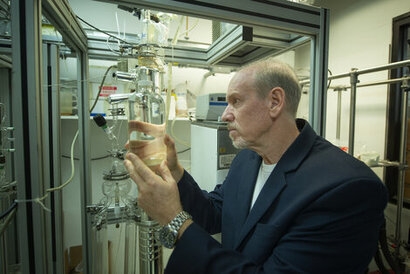
The two new fuels employ a unique catalyst system made for EFT by Haldor Topsoe. The process is ideally configured to pair with EFT’s Fischer Tropsch technology to provide a scalable, sustainable path for converting Fischer Tropsch syncrude into very high yields of high-quality jet fuel and diesel fuel products. Maxx Jet technology was recently used to make jet fuel from CO2 for the Air Force in partnership with Twelve.
The need for sustainable fuels - especially jet fuel - is immediate and apparent as global aviation produces 1.2 billion tons of CO2 emissions every year. With a commitment from those across the industry to make significant advancements toward widespread adoption of sustainable aviation fuel (SAF), EFT is well positioned to bring high yield, high quality jet fuel to market with its sustainable process.
“We are excited to offer these yield and quality improvements and very pleased to be working with Haldor Topsoe to manufacture our proprietary hydroprocessing catalysts” said Kenneth Agee, President of EFT. “Our proven process can be a valuable resource to an industry in great need of alternative fuel sources.”
Maxx Jet and Maxx Diesel combines novel equipment design and a tailored stacked bed catalyst system to achieve superior yields and product properties such as jet fuel with a freeze point below -55°C – a key property for high quality jet fuels. Improvements in diesel yields and properties are similar.
EFT plans to use Maxx Jet and Maxx Diesel technology in its BioGTL and FlareBuster projects, and to license it in combination with its Fischer Tropsch technology system for renewable fuels projects around the world. The combined method provides a highly effective way to convert any source of synthesis gas from biomass, biogas or CO2 into the highest yield and quality of jet and diesel fuel products.
For additional information:

